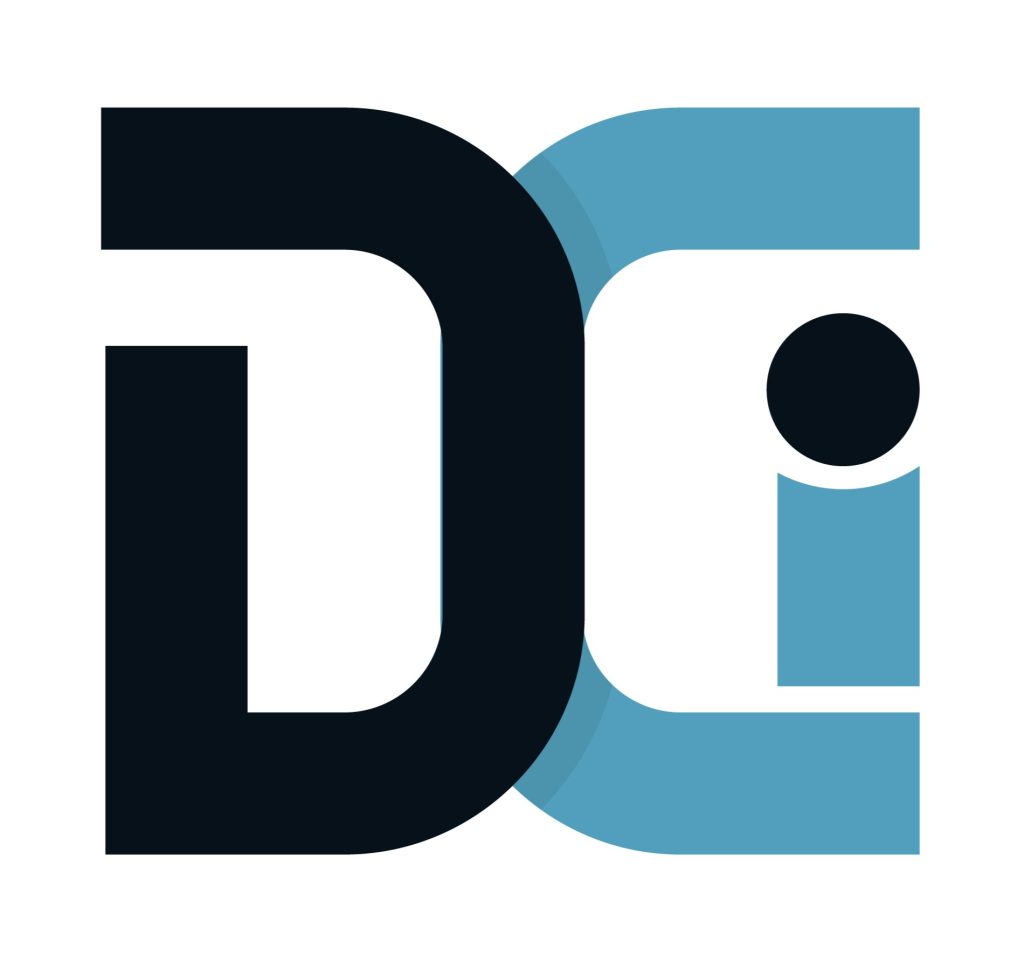The entertainment industry has faced significant financial uncertainty, especially in light of the COVID-19 pandemic. This has had a direct impact on entertainment industry accountants, who have had to navigate various challenges and adapt to new circumstances. In this article, we will explore the impact of COVID-19 on entertainment industry accountants, strategies for financial stability, the role of technology in overcoming financial uncertainty, and the importance of professional development and networking in uncertain times.
Key Takeaways
- Entertainment industry accountants face unique challenges in times of financial uncertainty.
- Adapting to remote work and navigating changes in revenue streams are crucial for financial stability.
- Diversifying client base and exploring new opportunities can help mitigate financial risks.
- Utilizing accounting software and automation can streamline financial processes.
- Continuing education, building a strong professional network, and staying updated on industry trends are essential for professional development.
The Impact of COVID-19 on Entertainment Industry Accountants

Challenges Faced by Accountants in the Entertainment Industry
Accountants in the entertainment industry face unique challenges that can be stressful and place them in challenging positions. Evolving industry trends can create uncertainty, requiring accountants to adapt quickly. Limited creativity is another challenge, as accounting is a field governed by strict rules and regulations. This leaves little room for creative expression. Time management is also a challenge, with long hours and a high workload. Balancing work and personal life can be difficult. Despite these challenges, there are also opportunities for accountants to continuously challenge themselves and grow professionally. The variety of industries that accountants can work in, including finance, healthcare, government, and entertainment, allows for diverse experiences. Accountants also have the potential to work in a diverse and inclusive environment, with colleagues from different backgrounds and perspectives.
Adapting to Remote Work
Adapting to remote work has become essential for entertainment industry accountants. With the shift to remote work, accountants now have the flexibility to access financial data and collaborate with clients or colleagues from anywhere. This flexibility can improve work-life balance and increase productivity. However, there are also risks of automation and job displacement in the accounting field. Technology advancements can automate certain tasks, potentially reducing the demand for accountants. Accountants can adapt by developing new skills and specializing in areas that require human judgment.
Navigating Changes in Revenue Streams
When faced with changes in revenue streams, it is important for entertainment industry accountants to adapt and find new ways to generate income. This may involve diversifying client base and exploring new opportunities in the industry. Implementing cost-cutting measures can also help manage cash flow during uncertain times. Additionally, seeking financial assistance and support can provide the necessary resources to overcome financial challenges. Table: Revenue Stream Strategies
| Strategies |
|---|
| Diversifying client base |
| Exploring new opportunities |
| Implementing cost-cutting measures |
| Seeking financial assistance and support |
Tip: Stay proactive and flexible in finding alternative revenue sources.
It is crucial for entertainment industry accountants to stay updated on industry trends and changes in order to navigate the evolving landscape. By staying informed and connected with peers, accountants can gain valuable insights and support. Building a strong professional network and seeking mentorship can provide guidance and opportunities for growth. Continuing education and skill enhancement are also important for staying competitive in the industry. List: Professional Development
- Continuing education and skill enhancement
- Building a strong professional network
- Seeking mentorship and guidance
- Staying updated on industry trends
Managing Cash Flow and Budgeting
When it comes to managing cash flow and budgeting, there are several key strategies that can help entertainment industry accountants navigate financial uncertainty:
- Monitor Cash Flow: Keep a close eye on incoming and outgoing cash to ensure a healthy financial position.
- Create a Budget: Develop a detailed budget that accounts for all expenses and revenue streams.
- Forecast Future Cash Flow: Use financial projections to anticipate potential cash flow challenges and plan accordingly.
- Implement Cost-saving Measures: Identify areas where expenses can be reduced without compromising the quality of work.
Remember, effective cash flow management and budgeting are essential for maintaining financial stability in the entertainment industry.
Strategies for Financial Stability

Diversifying Client Base
Diversifying your client base is crucial for financial stability in the entertainment industry. By expanding your network and reaching out to professionals in accounting and finance circles, you can gain valuable insights and explore different career paths. This not only increases your confidence and credibility but also allows you to tackle complex financial challenges with enhanced understanding and efficiency. Additionally, diversifying your client base reduces the risk of relying too heavily on a single source of revenue. It opens up new opportunities and ensures a more stable and sustainable income stream.
Exploring New Opportunities
In the ever-evolving entertainment industry, it’s crucial for accountants to stay ahead of the curve and explore new opportunities. Here are some strategies to consider:
- Expand your client base: Look for clients in emerging sectors or niche markets to diversify your portfolio.
- Stay updated on industry trends: Keep a pulse on the latest developments in the entertainment industry to identify potential areas for growth.
- Network with industry professionals: Build connections with other professionals in the field to uncover new opportunities and collaborations.
- Think outside the box: Be open to unconventional roles or projects that can expand your skillset and broaden your career prospects.
Remember, embracing change and seeking out new opportunities can lead to financial stability and personal growth in uncertain times.
Implementing Cost-cutting Measures
Adopt agile principles for resource allocation, enabling teams to dynamically adjust workloads and priorities based on real-time business demands.
Continuous Training and Development: Emphasize continuous learning and development within agile workflows, ensuring teams stay adaptable and proficient in utilizing new technologies and methodologies.
Conclusion
Regardless of the innovations on the cards, collaborative endeavors with BPOs in finance and accounting will remain the best way to amplify the efficacy of receivables management. These partnerships will combine cutting-edge
Seeking Financial Assistance and Support
In times of financial uncertainty, it is crucial to seek financial assistance and support to navigate the challenges ahead. Here are some strategies to consider:
- Explore government grants and funding programs that are available to support businesses in the entertainment industry.
- Reach out to industry associations and organizations that offer financial resources and guidance.
- Consider partnering with financial advisors or consultants who specialize in the entertainment industry.
- Network with other professionals in the industry to learn about potential financial opportunities.
Remember, seeking financial assistance and support can provide valuable insights and resources to help you overcome financial uncertainty.
The Role of Technology in Overcoming Financial Uncertainty

Utilizing Accounting Software and Automation
Utilizing accounting software and automation can greatly benefit entertainment industry accountants. By leveraging technology, accountants can streamline their processes, improve accuracy, and save time. Accounting software allows for easy organization and analysis of financial data, while automation can automate repetitive tasks, such as data entry and report generation. This not only increases efficiency but also reduces the risk of human error. Additionally, accounting software and automation enable remote work, allowing accountants to access financial data and collaborate with clients or colleagues from anywhere. This flexibility can improve work-life balance and increase productivity.
Enhancing Data Security and Privacy
In today’s digital landscape, data security and privacy are of utmost importance for entertainment industry accountants. Protecting sensitive financial information and client data is essential to maintain trust and credibility. To enhance data security and privacy, consider the following strategies:
- Implement robust encryption protocols to safeguard data from unauthorized access.
- Regularly update and patch software systems to address vulnerabilities and protect against cyber threats.
- Conduct regular security audits to identify and address any potential weaknesses in the system.
- Train employees on best practices for data security and privacy, including strong password management and recognizing phishing attempts.
By prioritizing data security and privacy, entertainment industry accountants can mitigate the risks associated with cyber threats and ensure the confidentiality of sensitive information.
Leveraging Data Analytics for Financial Insights
Incorporate data analytics to gain valuable financial insights and make informed decisions.
- Utilize machine learning models for credit risk assessment and prediction.
- Implement AI-driven behavioral analytics to understand customer payment patterns.
- Leverage machine learning algorithms for intelligent invoice matching and automation.
- Use predictive analytics to analyze historical data and forecast cash flow patterns.
Tip: Incorporate AI and ML techniques to optimize discounting strategies and enhance cash acceleration.
Streamlining Financial Processes
Streamlining financial processes is crucial for efficient and effective operations. By leveraging technology and automation, you can optimize your financial workflows and improve productivity. Here are some strategies to consider:
- Automate Invoice Processing: Leverage AI-powered tools to streamline invoice creation, delivery, and payment tracking for enhanced efficiency.
- Blockchain for Transparency: Employ blockchain technology to ensure secure and transparent transactions, reducing fraud risks in accounts receivables.
- Mobile Payment Integration: Facilitate quicker payments by integrating mobile payment options, offering convenience to customers and accelerating cash flow.
- Predictive Analytics: Utilize data analytics to gain insights into financial trends and make informed decisions.
By implementing these strategies, you can streamline your financial processes, reduce manual work, and enhance accuracy and transparency.
Professional Development and Networking in Uncertain Times

Continuing Education and Skill Enhancement
Continuing to learn and improve your skills is crucial in the ever-evolving field of entertainment industry accounting. Here are some ways you can enhance your knowledge:
- Attend industry conferences and workshops to stay updated on the latest trends and best practices.
- Take online courses or certifications to expand your expertise in specific areas.
- Engage in professional networking to connect with peers and learn from their experiences.
- Seek out mentorship and guidance from seasoned professionals in the industry.
Remember, investing in your education and skill development is an investment in your future success as an entertainment industry accountant.
Building a Strong Professional Network
By connecting with professionals in accounting and finance circles, you’ll expand your network and gain valuable insights into different career paths.
Opportunities: Expand your network and gain valuable insights into different career paths.
Increased Confidence and Credibility: Boost your confidence and credibility, allowing you to tackle complex financial challenges with enhanced understanding and efficiency.
Broader Skill Set: Acquire expertise in financial analysis and meticulous record-keeping, making you a versatile asset in diverse business environments.
Enhanced Job Prospects: Graduates with a combined understanding of accounting and finance are highly sought-after, opening up a wide range of job opportunities.
Career Aspirations: Match your degree with long-term goals and explore various career prospects beyond traditional firms.
Networking: Connect with professionals to gain insights and expand your network.
Teamwork and Communication: Develop strong teamwork and communication skills for successful organizational relationships.
Seeking Mentorship and Guidance
In your journey to navigate financial uncertainty, seeking mentorship and guidance can provide valuable insights and support. Consider the following:
- Connect with experienced professionals in the industry who can offer advice and share their experiences.
- Join professional networks and organizations to expand your connections and access resources.
- Seek out mentors who can provide guidance and help you navigate challenges.
- Stay updated on industry trends and best practices through continuous learning.
Remember, learning from others who have faced similar situations can help you make informed decisions and navigate the path to financial stability.
Staying Updated on Industry Trends
To stay ahead in the ever-evolving entertainment industry, it is crucial for accountants to stay updated on the latest industry trends. Here are some strategies to help you stay informed:
- Follow industry publications and websites for news and insights.
- Attend industry conferences and events to network and learn from industry experts.
- Join professional associations and online communities to connect with peers and share knowledge.
- Engage in continuous learning and professional development to enhance your skills and stay relevant.
Remember, staying updated on industry trends is essential for success in the dynamic entertainment industry.
Conclusion
In conclusion, entertainment industry accountants face numerous challenges and uncertainties in their profession. The ever-changing landscape of the accounting field, limited creativity, demanding work hours, and the need for continuous learning can create stress and burnout. However, there are also benefits such as opportunities for growth, diversity in industries, and a good work-life balance. It is important for accountants in this industry to navigate these challenges and find ways to thrive in their careers.
Frequently Asked Questions
What are the challenges faced by accountants in the entertainment industry?
Accountants in the entertainment industry face challenges such as financial uncertainty, pressure to overlook issues, and the need to adapt quickly to evolving industry trends.
How can accountants adapt to remote work?
Accountants can adapt to remote work by utilizing technology, implementing effective communication strategies, and maintaining a structured work schedule.
What are the strategies for managing cash flow and budgeting in the entertainment industry?
Strategies for managing cash flow and budgeting in the entertainment industry include forecasting revenue streams, implementing cost-cutting measures, and seeking financial assistance and support.
How can accountants diversify their client base?
Accountants can diversify their client base by targeting different sectors within the entertainment industry, expanding their services to other industries, and networking with professionals in related fields.
What role does technology play in overcoming financial uncertainty?
Technology plays a crucial role in overcoming financial uncertainty by providing accounting software for automation, enhancing data security and privacy, and leveraging data analytics for financial insights.
How can accountants stay updated on industry trends?
Accountants can stay updated on industry trends by participating in continuing education programs, building a strong professional network, seeking mentorship and guidance, and staying informed through industry publications and events.








